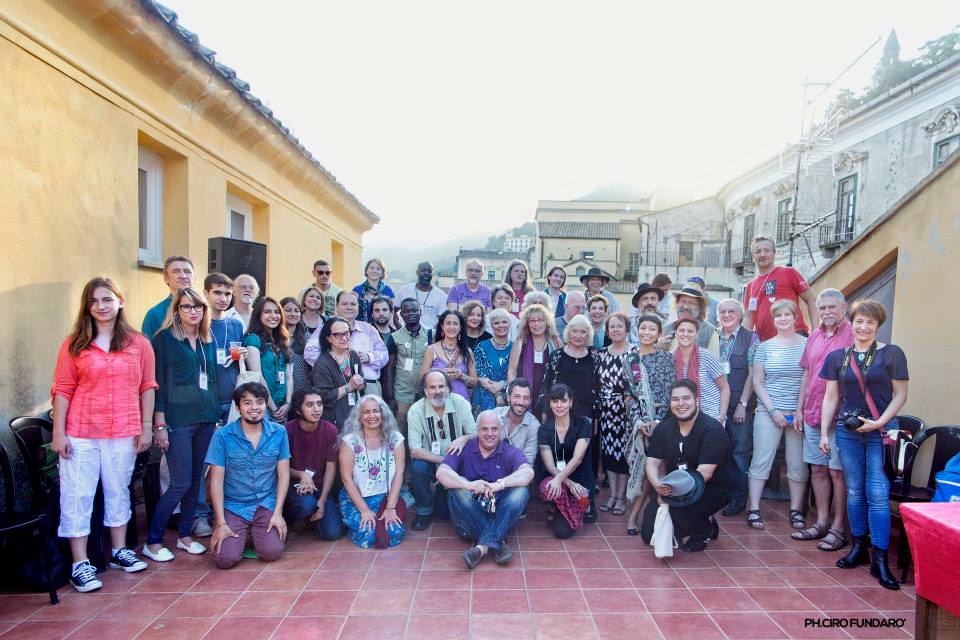Do you want to join other poets, musicians, and artists around the world in a demonstration/celebration to promote peace, sustainability and justice, and to call for serious social, environmental and political change?
Sept. 28th, 2024 is the next Global Event Day!
SIGN UP Here!
To look for all global events and locations, get updates, current news, and connect with organizers worldwide visit the 100TPC BLOG!
Where you can search for 100TPC events by country/city go to the
READ A POEM TO A CHILD
A SPECIAL 100 THOUSAND POETS FOR CHANGE INITIATIVE
Poetry lovers – Make  sure to add #ReadAPoemToAChild to your calendar for September 28th 2024. “Read A Poem To A Child” is a 100 Thousand Poets for Change literacy initiative introducing children to poetry.
sure to add #ReadAPoemToAChild to your calendar for September 28th 2024. “Read A Poem To A Child” is a 100 Thousand Poets for Change literacy initiative introducing children to poetry.
100TPC is working in conjunction with Florida State University Libraries Special Collections.
We are offering free resources, including a downloadable Compilation of Poems for Readers.pdf of poems for children compiled by Florida State University Libraries, as well as curriculum ideas for the classroom.
All you have to do to contribute to this initiative is to read poetry to a child. We welcome poetry lovers, teachers, parents, and friends, to help introduce children to the beauty and joy of poetry!
If you would like to register your participation in the “Read A Poem To A Child” initiative follow this link to the sign up page “Sign up.” https://100tpc.org/sign-up/
#readapoemtoachild

“100 THOUSAND POETS FOR CHANGE:
10 YEARS OF EVOLUTION (2011-2020) Vol 1: The Memoir”
__________________________________________________________________________________
Sept. 26th, 2021 is the official Global Day!!! 2 readings, 60+ poets from 14 counties.
11am est and 4pm est!
On Facebook @ 100 Thousand Poets for Change (Official).

Statement Against Racial Injustice in The United States of America
100 Thousand Poets for Change (100 TPC) has organized over 5000 poetry, art and music gatherings for the cause of Peace, Justice, and Sustainability across the globe in the last 10 years. Poets from many languages, cultures, geographical regions, ethnicities, creeds, beliefs, and religious affiliations have come together year after year to lead and promote poetry readings, without any preconditions or censorship, where participants speak out for causes nearest their hearts. In the process, oppressions, exploitative practices, biases, and abuses of many kinds have been highlighted (personal and social, communal, political and economic, spiritual, intellectual and emotional)—whether based on gender, race, class, or religious affiliation, color, territory, language and cultural tradition, or any form of differentiation whatsoever. These are real troubles that wrack our world; there are distinct and often mortal consequences to these regimes of tyranny and persecution; and there is a collective interest in striving toward the demanding ideal that 100 TPC has set for itself in calling for Peace, Justice, Sustainability.
100 Thousand Poets for Change stands in solidarity with African Americans and the “Black Lives Matter” movement in The United States fighting individual and systemic oppression and racial injustice.
(Statement prepared by a committee of 100 TPC organizers, July, 2020).
Since 2011, 100 Thousand Poets for Change has been working with poets, writers, artists, musicians… to help organize events around the world for peace, justice and sustainability. Now, more than ever mobilization is crucial so we have created the this GLOBAL ACTION CALENDAR open to EVERYONE to post Creative Actions around the world.
We want to continue to emphasize the need for INCLUSIVITY and true DIVERSITY in our global network. We hope this calendar will help people connect and give access to those who often times are marginalized in our creative communities.
Thank you for all the work you do!
NEW! RESISTANCE POETRY WALL
The RESISTANCE POETRY WALL has been opened in response to a call by many for an open and central place to post poetry about the recent USA elections. Poets from around the world are invited to post.
CLICK HERE TO GO TO THE WALL
100TPC on the Global Google Map!
View 100,000 Poets for Change in a larger map





